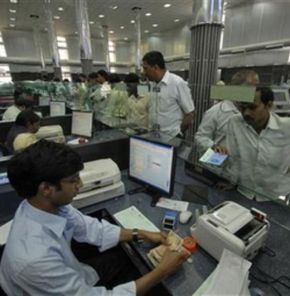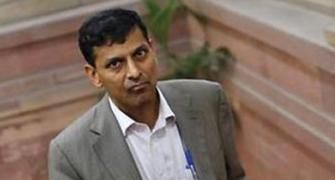It will work out cheaper to revive the account. If it remains idle for too long, balance would be transferred to the depositor awareness fund, rues Priya Nair.
 You changed jobs and moved cities but didn’t bother closing your salary account. After all, there is not much money in it.
You changed jobs and moved cities but didn’t bother closing your salary account. After all, there is not much money in it.
Besides, the bank deducts charges as penalty for not maintaining the minimum balance.
In fact, you are worried that you will have to pay additional penalty if you go back to close the account.
Not any more.
The Reserve Bank of India has told banks not to levy penal charges for non-maintenance of minimum balances in any inoperative account.
Reserve Bank of India says there is an estimated Rs 3,500 crore (Rs 35 billion) of unclaimed deposits with banks.
With this rule change, some of these accounts could be reactivated, says A Surendran, head-retail & international banking, Federal Bank.
Accounts remain inoperative if the account holder changes jobs, shifts to another city or sometimes shifts to another bank due to better service there.
An account that does not see any transaction for six months to a year is classified as inoperative or dormant.
But the bank has to maintain it and pay the interest on it.
Thanks to technology and integration of systems, if any money comes into the account, then the charges get deducted automatically.
That is why account holders often find that the balance in inoperative accounts gets depleted even if they don’t withdraw it.
In fact, there are lots of cases where the amount in the account goes into a negative figure -- the amount is lower than the minimum balance and the deposit holder has not closed the account due to sheer inertia, says Harsh Roongta, chief executive officer, Apnapaisa.com.
“There are lots of inoperative accounts with large amounts. In such cases, there is no issue because it is more than the minimum balance requirement,” he says.
In inoperative accounts, the amount is classified as an unclaimed deposit after 10 years of the account turning inoperative and the amount is transferred to the Depositor Education and Awareness Fund Scheme opened by RBI.
However, banks have not started transferring funds yet, as the proposed scheme is yet to be notified by the government, says Surendran.
The quarterly minimum to be maintained in savings bank accounts ranges from Rs 1,000 to Rs 10,000.
It is usually less in public sector banks as compared to private or foreign ones.
If your account is in an urban branch, the minimum balance requirement is higher than in a rural one.
The charge for non-maintenance of the minimum balance ranges between nil and Rs 350.
It is nil for no-frills accounts or those with no additional facilities such as a cheque book or automated teller machine card.
Banks charge a penalty for non-maintenance of the minimum balance as they incur a cost to maintain the account.
There is a capital cost for keeping records and a recurring operational cost for handling cheques that might be returned due to the insufficient balance or attending to queries on the account.
Last year, Federal Bank organised a campaign for revival of inoperative accounts and managed to do so for about 200,000, across the domestic and non-resident categories.
“We contacted our customers and waived the penalty on non-maintenance of balance in the operative accounts.
“It is cheaper than getting new accounts opened.
“And, this way we maintained the relationship with our customers,” says Surendran.
Image: Reserve Bank of India says there is an estimated Rs 3,500 crore (Rs 35 billion) of unclaimed deposits with banks; Photograph: Reuters









